#fascinating how much the culture war has changed things
Explore tagged Tumblr posts
Text
lmao im visiting my parents and brother in a few weeks and apparently the weekend im there my parents are speaking in sacrament meeting and theyre inviting me to hear/help with baby niece since theyre speaking they wont be in the pews to help brother w the baby
i no longer have Any feelings towards the mormon church even the hurt and anger has burnt out but its SO funny they want me. to come to church with them. my preHRT ass. in a suit. to a mormon church. in texas. RIGHT after there's just been a BIG fucking announcement from the top mormon executives mandating the awful treatment of trans members.
anthropologically, i am kind of interested. HOW dumb does it sound now that i am no longer drenched in the koolaid. and also, it would be VERY funny if anyone tried to pull shit with me in the ritzy suburban mormon ward. might shock em out of their bubble a bit.
but uh. probably not a good idea.
#fascinating how much the culture war has changed things#i came out nine years ago and my mom and sister basically kept accidentally outing me to all their mormon friends so.#everyone knows im trans.#and EVERYONE. of those southern mormons. was ALWAYS kind and decent and respectful about it to my face.#so. my parents have. no idea how uh#bad. transphobia can be. they dont watch culture war bullshit#and the mormon way is passive aggression so i would not be in danger even if the texas mormons get their ugly corporate undies in a twist
8 notes
·
View notes
Text
i can't decide if the dawn of the jedi comics are actually good but i CAN tell you i'm chewing on Xesh like a teething puppy. the force hounds are insanely good as a concept. i am going to eat them. also, i can be relied upon to go insane about characters who see themselves as weapons and not people!
#anyway. he's blorbo shaped and hot and what else do i need honestly. at least the art here is better than totj#granted that bar is on the GROUND but you know. you take what you can get in star wars#also worldbuilding. my BELOVED. pre-colonization sith??? that have retained distinctive species markers after TEN THOUSAND YEARS??#how large were these SHIPS. how much intermarrying between species was there. how isolated were they. someone give me answers please#how much has the CULTURE changed??? i do not have enough information! and i need that information right now immediately-#ac says things#also i'm on prisoner of bogan issue 3 so by no means am i done here#pros: fascinating characters. cons: i can smell the encroaching Straight People Relationship TM from a mile away and it's going to be BORIN#i can FEEL it.
2 notes
·
View notes
Text
Thinking about Odysseus and how his character is interpreted and seen throughout history. How in every culture and time period he seems to change and transform based on cultural opinions. How for Homer he was a hero that suffered much, how in most of Euripides' plays he's a bad guy, and for some Roman authors he was horrible, his worse qualities heightened. And then there's the modern reception, where some of his worse traits are completely removed to make him more palatable to a modern audience that is not very familiar with the myths.
Think about epic the musical, how at first he is merciful and then changes. In the Odyssey he's totally different, he's ruthless since the beginning. The total switch in the perception of his character is truly fascinating! In fanon he's funny, he's a silly little guy, he's a little bastard and we love him for that. In canon he's a war criminal that damned an entire city for the riches, for the glory, for the wish of coming back home to his family.
I'm not here to criticize modern takes of him ( I reserve the blorbo tratement for him too), I just find it truly interesting how much he has changed in the eyes of the audience, how much he's still relevant after the Bronze Age. There's not just one Odysseus and he's not simply a soldier that wanted kleos, he's not simply a man that suffered much, he's not simply a man that just wanted to go home. He's all of these things and a lot more.
He's the man of many twistes and turns indeed.
#odysseus#the iliad#the odyssey#epic the musical#analysis#Also fun fact#Polutropon in the most used translation of the odyssey in my language translates roughly to “which intellect takes many forms”#I like him a normal amount#Also sorry I know that there's other people that explained this better than me but I had to talk about this
266 notes
·
View notes
Text
Shōgun Historical Shallow-Dive: the Final Part - The Samurai Were Assholes, When 'Accuracy' Isn't Accurate, Beautiful Art, and Where to From Here
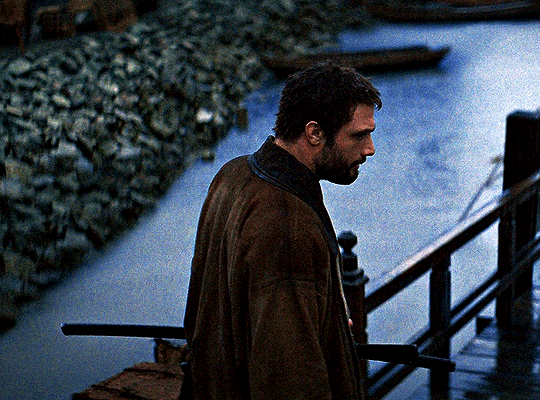
Final part. There is an enormous cancer attached to the samurai mythos and James Clavell's orientalism that I need to address. Well, I want to, anyway. In acknowledging how great the 2024 adaptation of Shōgun is, it's important to engage with the fact that it's fiction, and that much of its marketed authenticity is fake. That doesn't take away from it being an excellent work of fiction, but it is a very important distinction to me.
If you want to engage with the cool 'honourable men with swords' trope without thinking any deeper, navigate away now. Beyond here, there are monsters - literal and figurative. If you're interested in how different forms of media are used to manufacture consent and shape national identity, please bear with me.
I think the makers of 2024's Shōgun have done a fantastic job. But there is one underlying problem they never fully wrestled with. It's one that Hiroyuki Sanada, the leading man and face of the production team, is enthusiastically supportive of. And with the recent announcement of Season 2, it's likely to return. You may disagree, but to me, ignoring this dishonours the millions of people who were killed or brutalised by either the samurai class, or people in the 20th century inspired by a constructed idea of them.
Why are we drawn to the samurai?
A pretty badly sourced, but wildly popular history podcast contends that 'The Japanese are just like everybody else, only more so.' I saw a post on here that tried to make the assertion that the show's John Blackthorne would have been exposed to as much violence as he saw in Japan, and wouldn't have found it abnormal.
This is incorrect. Obviously 16th and 17th century Europe were violent places, but they contained violence familiar to Europeans through their cultural lens. Why am I confidently asserting this? We have hundreds of letters, journals and reports from Spaniards, Portuguese, Dutch and English expressing absolute horror about what they encountered. Testing swords on peasants was becoming so common that it would eventually become the law of the land. Crucifixion was enacted as a punishment for Christians - first by the Taiko, then by the Tokugawa shogunate - for irony's sake.
Before the end of the feudal period, battles would end with the taking of heads for washing and display. Depending on who was viewing them, this was either to honour them, or to gloat: 'I'm alive, you're dead.' These things were ritualised to the point of being codified when real-life Toranaga took control. Seppuku started as a cultural meme and ended up being the enforced punishment for any minor mistake for the 260 years the ruling samurai class acted as the nation's bureaucracy. It got more and more ritualised and flowery the more it got divorced from its origin: men being ordered by other men to kill themselves during a period of chaotic warfare. I've read accounts of samurai 'warriors' during the Edo period committing seppuku for being late for work. Not life-and-death warrior work - after Sekigahara, they were just book-keepers. They had desk jobs.
Since Europe's contact with Japan, the samurai myth has fascinated and appalled in equal measure. As time has gone on, the fascination has gone up and the horror has been dialled down. This is not an accident. This isn't just a change in the rest of the world's perception of the samurai. This is the result of approximately 120 years of Japanese government policies. Successive governments - nationalist, military authoritarian, and post-war democratic - began to lionize the samurai as the perfect warrior ideal, and sanitize the history of their origin and their heydey (the period Shōgun covers). It erases the fact that almost all of the fighting of the glorious samurai Sengoku Jidai was done by peasant ashigaru (levies), who had no choice.
It is important to never forget why this was done initially: to form an imagined-historical ideal of a fighting culture. An imagined fighting culture that Japanese invasion forces could emulate to take colonies and subdue foreign populations in WWI, and, much more brutally, in WWII. James Clavell came into contact with it as a Japanese Prisoner of War.
He just didn't have access to the long view, or he didn't care.
The Original Novel - How One Ayn Rand Fan Introduced Japan to America
There's a reason why 1975's Shogun novel contains so many historical anachronisms. James Clavell bought into a bunch of state-sanctioned lies, unachored in history, about the warring states period, the concept of bushido (manufactured after the samurai had stopped fighting), and the samurai class's role in Japanese history.
For the novel, I could go into great depth, but there are three things that stand out.
Never let the truth get in the way of a good story. He's a novelist, and he did what he liked. But Clavell's novel was groundbreaking in the 70's because it was sold as a lightly-fictionalised history of Japan. The unfortunate fact is the official version that was being taught at the time (and now) is horseshit, and used for far-right wing authoritarian/nationalist political projects. The Three Unifiers and the 'honour of the samurai' magnates at the time is a neat package to tell kids and adults, but it was manufactured by an early-20th century Japanese Imperial Government trying to harness nationalism for building up a war-ready population. Any slightly critical reading of the primary sources shows the samurai to be just like any ruling class - brutal, venal, self-interested, and horrifically cruel. Even to their contemporary warrior elites in Korea and China.
Fake history as propraganda. Clavell swallowed and regurgitated the 'death before dishonour', 'loyalty to the cause above all else', 'it's all for the Realm' messages that were deployed to justify Imperial Japanese Army Class-A war crimes during the war in the Pacific and the Creation of the Greater East Asian Co-Properity Sphere. This retroactive samurai ethos was used in the late Meiji restoration and early 20th century nationalist-military governments to radicalise young Japanese men into being willing to die for nothing, and kill without restraint. The best book on this is An Introduction to Japanese Society by Sugimoto Yoshio, but there is a vast corpus of scholarship to back it up.
Clavell's orientalism strays into outright racism. Despite the novel Shōgun undercutting John Blackthorne as a white savior in its final pages - showing him as just a pawn in the game - Clavell's politics come into play in every Asia Saga novel. A white man dominates an Asian culture through the power of capitalism. This is orthagonal to points 1 and 2, but Clavell was a devotee of Ayn Rand. There's a reason his protagonists all appear cut from the same cloth. They thrust their way into an unfamiliar society, they use their knowledge of trade and mercantilism to heroically save the day, they are remarked upon by the Asian characters as braver and stronger, and they are irresistible to the - mostly simpering, extremely submissive - caricatures of Asian women in his novels. Call it a product of its times or a product of Clavell's beliefs, I still find it repulsive. Clavell invents (nearly from whole cloth, actually) the idea that samurai find money repulsive and distasteful, and his Blackthorne shows them the power of commerce and markets. Plus there are numerous other stereotypes (Blackthorne's massive dick! Japanese men have tiny penises! Everyone gets naked and bathes together because they're so sexually free! White guys are automatically cool over there!) that have fuelled the fantasies of generations of non-Japanese men, usually white: Clavell's primary audience of 'dad history' buffs.
2024's Shōgun, as a television adaptation, did a far better job in almost every respect
But the show did much better, right? Yes. Unquestionably. It was an incredible achievement in bringing forward a tired, stereotypical story to add new themes of cultural encounter, questioning one's place in the broader world, and killing your ego. In many ways, the show was the antithesis to Clavell's thesis.
It drastically reigned in the anachronistic, ahistorical referencees to 'bushido' and 'samurai honor', and showed the ruling class of Japan in 1600 much more accurately. John Blackthorne (William Adams) was shown to be an extraordinary person, but he wasn't central to the outcome of the Eastern Army-Western Army civil war. There aren't scenes of him being the best lover every woman he encounters in Japan has ever had (if you haven't read the book, this is not an exaggeration). He doesn't teach Japanese warriors how to use matchlock rifles, which they had been doing for two hundred years. He doesn't change the outcome of enormous events with his thrusting, self-confident individualism. In 2024's Shōgun, Blackthorne is much like his historical counterpart. He was there for fascinating events, but not central. He wasn't teaching Japanese people basic concepts like how to make money or how to make war.
On fake history - the manufactured samurai mythos - it improved on the novel, but didn't overcome the central problems. In many ways, I can't blame the showrunners. Many of the central lies (and they are deliberate lies) constructed around the concept of samurai are hallmarks of the genre. But it's still important to me to notice when it's happening - even while enjoying some of the tropes - without passively accepting it.
'Authenticity' to a precisely manufactured story, not to history
There's a core problem surrounding the promotion and manufactured discussion surrounding 2024's Shōgun. I think it's a disconnect between the creative and marketing teams, but it came up again and again in advertising and promotion for the show: 'It's authentic. It's as real as possible.'
I've only seen this brought up in one article, Shōgun Has a Japanese-Superiority Complex, by Ryu Spaeth:
'The show also valorizes a supreme military power that is tempered by the pursuit of beauty and the highest of cultures, as if that might be a formula for peace. Shōgun displays these two extremes of the Japanese self, the savagery and the refinement, but seems wholly unaware that there may be a connection between them, that the exquisite sensibility Japan is famous for may flow from, and be a mask for, its many uses of atrocious domination.'
Here we come to authenticity.
'The publicity surrounding the series has focused on its fidelity to authenticity: multiple rounds of translation to give the dialogue a “classical” feel; fastidious attention to how katana swords should be slung, how women of the nobility should fold their knees when they sit, how kimonos should be colored and styled; and, crucially, a decentralization of the narrative so that it’s not dominated by the character John Blackthorne.'
It's undeniable that the 2024 production spent enormous amounts of energy on authenticity. But authenticity to what? To traditional depictions of samurai in Japanese media, not to history itself. The experts hired for gestures, movement, costumes, buildings, and every other aspect of the show were experts with decades in experience making Japanese historical dramas 'look right', not experts in Japanese history. But this appeal to 'Japanese authenticity' was made in almost every piece of promotional material.
The show had only one historical advisor on staff, and he was Dutch. The numerous Japanese consultants, experts and specialists brought on board (talked about at length in the show's marketing and behind the scenes) were there to assist with making an accurate Japanese jidaigeki. It's the difference between hiring an experienced BBC period drama consultant, and a historian specialising in the Regency. One knows how to make things look 'right' to a British audience. The other knows what actually happened.
That's fine, but a critical viewing of the show needs to engage with this. It's a stylistically accurate Japanese period drama. It is not an accurate telling of Japanese history around the unification of Japan. If it was, the horses would be the size of ponies, there would be far more malnourished and brutalised peasants, the word samurai would have far less importance as it wasn't yet a rigidly enforced caste, seppuku wouldn't yet be ritualised and performed with as much frequency, and Toranaga - Tokugawa - would be a famously corpulently obese man, pounding the saddle of his horse in frustration at minor setbacks, as he was in history.
The noble picture of restraint, patience, refinement and honour presented by Hiroyuki Sanada as Toranaga/Tokugawa is historical sanitation at its most extreme. Despite being Sanada's personal hero, Tokugawa Ieyasu was a brutal warlord (even for the standards of the time), and he committed acts of horrific cruelty. He ordered many more after gaining ultimate power. Think a miniseries about the Founding Fathers of the United States that doesn't touch upon slavery - I'm sure there have been plenty.
The final myth that 2024's Shōgun leaves us with is that it took a man like Toranaga - Tokugawa Ieyasu - to bring peace to a land ripped assunder by chaos. This plays into 19th century notions of Great Man History, and is a neat story, but the consensus amongst historians is if it wasn't Tokugawa, it would have been some other cunt. In many cases, it very nearly was. His success was historical contingency, not 5D chess.
So how did this image get manufactured, to the point where the Japanese populace - by and large - believes it to be true? Very long story short: after a period of rapid modernisation, Japan embraced nationalism in the late 19th century. It was all the rage. Nationalism depends on a glorified past. The samurai (recently the pariahs of Japanese history) were repurposed as Japan's unique warrior heroes, and woven into state education. This was especially heated in the 1920s and 30s in the lead up to the invasion of Manchuria and Japan's war of aggression in the Pacific. Nationalism + militarism = the modern Japanese samurai myth, to prepare men to obey orders unquestioningly from a military dictatorship.
This persists in the postwar period. Every year since 1963, Japan's state broadcaster NHK commissions a historical drama - a Taiga Drama, where many of this show's actors got their starts - that manufactures and re-enforces the idea of samurai as noble, artful, honourable people. Read a book - read a Wikipedia article! - and you'll see that most of it stems from Tokugawa-shogunate era self-propaganda. It's much like the European re-interpretation of chivalry. In Europe's case, chivalry in actual history was a set of guidelines that allowed for the sanctioned mass-rape and murder of civilians, with a side of rules regarding the ransoming of nobles in scorched-earth military campaigns. In Japan's case, historical figures that regularly backstabbed each other, tortured rival warriors and their lessers, and inflicted horrific casualties on the peasants that they owned (we have a term for that) are cast as noble, honourable, dedicated servants of the Empire.
Why does this matter to me? Samurai movies and TV shows are just media, after all. The issue, for me, is that the actors, the producers - including Hiroyuki Sanada - passionately extoll 'accuracy' as if they genuinely believe they're telling history. They talk emotionally about bushido and its special place in Japanese society.
But the entire concept of bushido is a retroactive, post-conflict, samurai construction. Bushio is bullshit. Despite being spoken of as the central tenet of 2024's Shōgun by actors like Hiroyuki Sanada, Tadanobu Asano, and Tokuma Nishioka, it simply didn't exist at the time. It was made up after the advent of modern nationalism.
It was used to justify horrendous acts during the late Edo period, the Meiji restoration, and the years leading up to the conclusion of Japan's war of aggression in the Pacific. It's still used now by Japan's primarily right-wing government to deny war crimes and justify the horrors unleashed on Asia and the Pacific during World War II as some kind of noble warrior crusade. If you ever want your stomach turned, visit the museum attached to Yasukuni Shrine. It's a theme park dedicated to war crimes denial, linked intimately to Japan's imagined warrior past. Whether or not the production staff, cast, and marketing team of 2024's Shōgun knew they were engaging with a long line of ahistorical bullshit is unknown, but it is important.
It's also important to acknowledge that, having listened to many interviews with Rachel Kondo and Justin Marks, they were acutely aware that they weren't Japanese, to claim to be telling an authentically Japanese story would be wrong, and that all they could do was do their best to make an engaging work that plays on ideas of cultural encounter and letting go. I think the 'authenticity!' thing is mostly marketing, and judicious editing of what the creators and writers actually said in interviews.
So... you hate the show, then? What the hell is this all about?
No, I love the show. It's beautiful. But it's a beautiful artwork.
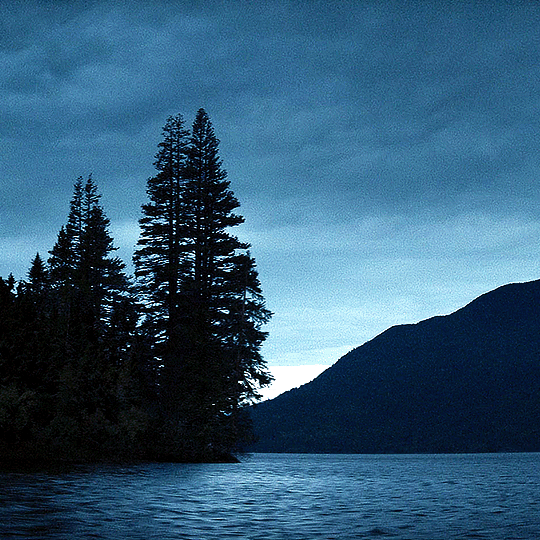
Just as the noh theatre in the show was a twisting of events within the show, so are all works of fiction that take inspiration from history. Some do it better than others. And on balance, in the show, Shōgun did it better than most. But so much of the marketing and the discussion of this adaptation has been on its accuracy. This has been by design - it was the strategy Disney adopted to market the show and give it a unique viewing proposition.
'This time, Shōgun is authentic!*
*an authentic Japanese period drama, but we won't mention that part.
And audiences have conflated that with what actually happened, as opposed to accuracy to a particular form of Japanese propaganda that has been honed over a century. This difference is crucial.
It doesn't detract from my enjoyment of it. Where I view James Clavell's novel as a horrid remnant of an orientalist, racist past, I believe the showrunners of 2024's Shōgun have updated that story to put Japanese characters front and centre, to decentralise the white protagonist to a more accurate place of observation and interest, and do their best to make a compelling subversion of the 'stranger in a strange land' tale.
But I don't want anyone who reads my words or has followed this series to think that the samurai were better than the armed thugs of any society. They weren't more noble, they weren't more honourable, they weren't more restrained. They just had 260 years in which they worked desk-jobs while wearing two swords to write stories about how glorious the good old days were, and how great people were.
Well... that's a bleak note to end on. Where to from here?
There are beautiful works of fiction that engage much closer with the actual truth of the samurai class that I'd recommend. One even stars Hiroyuki Sanada, and is (I think) his finest role.
I'd really encourage anyone who enjoyed Shōgun to check out The Twilight Samurai. That was the reality for the vast majority of post-Sekigahara samurai
For something closer to the period that Shogun is set, the best film is Seppuku (Hara-Kiri in English releases). It is a post-war Japanese film that engages both with the reality of samurai rule, and, through its central themes, how that created mythos was used to radicalise millions of Japanese into senseless death during the war. It is the best possible response to a romanticisation of a brutal, hateful period of history, dominated by cruel men who put power first, every single time.
I want to end this series, if I can, with hope. I hope that reading the novel or watching the 1980 show or the 2024 show has ignited in people an interest in Japanese culture, or society, or history. But don't let that be an end. Go further. There are so many things that aren't whitewashed warlords nobly killing - the social history of Japan is amazing, as is the women's history. A great book for getting an introduction to this is The Japanese: A History in 20 Lives.
And outside of that, there are so many beautiful Japanese movies and shows that don't deal with glorified violence and death. In fact, it makes up the vast majority of Japanese media! Who would have thought! Your Name was the first major work of art to bridge some of the cultural animosity between China and Japan stemming from WW2, and is a goofy time travel love story. Perfect Days is a beautiful movie about the simple joy of living, and it's about the most Tokyo story you can get.
Please go out, read more, watch more. If you can, try and find your way to Japan. It's one of the most beautiful places on earth. The people are kind, the food is delicious, and the culture is very welcoming to foreigners.
2024's Shōgun was great, but please don't let that be the end. Let it be the beginning, and I hope it serves as a gateway for you.
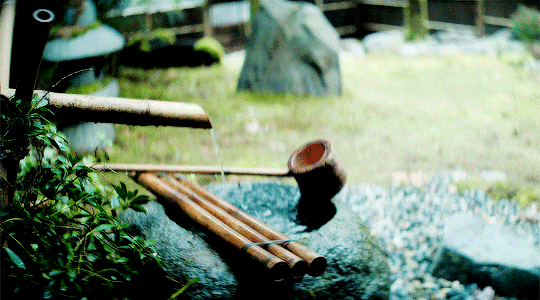
And I hope our little fandom on here remembers this show as a special time, where we came together to talk about something we loved. I'll miss you all.
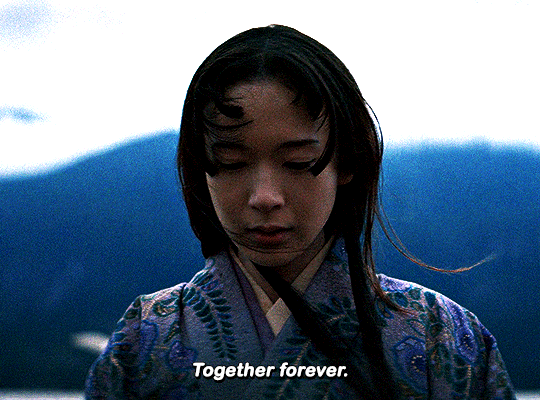
#shōgun#shogun#shogun fx#toda mariko#john blackthorne#anjin#adaptationsdaily#perioddramasource#hiroyuki sanada#yoshii toranaga#akechi mariko#history#history lesson#japan#world war ii#japanese culture#tokugawa ieyasu#hosokowa gracia#william adams#sengoku jidai#writer stuff#book adaptation#women in history#social history#period drama
153 notes
·
View notes
Text
it's fascinating to me the way that different social media platforms result in different types of fandom behavior. while s5 of tma was airing, I spent a good amount of time on tma tiktok (I log back in about once every two months now, going back to in-person school after a year a half of lockdown seem to re-blanace my brain and made me once again not really enjoy the format) while still using tumblr as my main socmed, and while there was a lot of overlap in the fan culture, some things were notably different.
tumblr tma fans had near-encyclopedic knowledge of the source material, but it was kind of an ongoing joke for tiktok tma fans that everyone binged the whole show in a week-long fugue state and lost memory of about 35% of it. tumblr has virtually no character limit and allows posts to be passed around by users indefinitely, which lends itself to fairly in-depth meta analysis being made and shared until most any fan could say "the time and space discrepancies at hill top road? psh yeah, I know all about them, I've read seven scrupulously cited posts that lay out all the details." for the entire time that s5 was airing, tiktok videos could still only be a minute long, and I know from a lot of personal effort that there's only so much you can fit into a one minute script that you also have to memorize and record (and cc manually with tiktok text stickers, as they didn't add the caption feature until april 2021) if you want the process to take less than four hours of your one mortal human life. and then you only see the video if your following or fyp algorithm shows it to you. there were a few tma meta-ish videos that got popular because other people would make their own videos referencing them and tag the account so their followers could see what they were talking about, but it's much harder to circulate content you like there. several times I saw people post videos saying "I got into cosplay to film some [agnes or annabelle or gerry or another secondary character] and I just realized I have no idea what their deal actually is 💀".
a thing that tiktok tma fandom was definitely better at than tumblr tma fandom was accurately remembering certain pieces of characterization and the flow of certain scenes. I've seen a bunch of posts on here where someone is trying to argue a point with excerpts from the text ("x character is nicer than you all give them credit for" "x character is so mean to y character in this scene" "z theory can't be true because y character said a line that disproves it") where the argument only holds up because the poster has gotten these excerpts from a transcript dive and hasn't listened to the episodes they're from recently, because while the text alone can be construed to mean one thing, the way it's delivered on-podcast clearly intends another. tiktok, being an audio and video based medium, allows audio clips to be shared around a lot, and cosplayers would often all make videos acting along to the same show clips of juicy interpersonal drama, and so tiktok fans, though they may have had less overall memory of what characters said, always had a better grasp on how they said it. an average tiktok tma fan might not have remembered melanie's subplot about war ghosts, but they would know the nuances of how the way she talks to jon changes between mag 28 and mag 155.
885 notes
·
View notes
Text
A Revali Fanfic Recommendation
I urge you all to put your life on hold for a moment and go read this brilliant fanfiction:
A hundred years after the fall of Hyrule to Calamity Ganon, and the hero Link has finally sealed the darkness and freed the Divine Beasts of their curse - and with it, their pilots are finally free. But not just as spirits. Awake once again, the four Champions of old have a second chance at life and must re-adjust to this future world with their decendants. Well - all except for one Champion, who doesn't have a decentant. Or even anyone left alive that knew him. Teba is happy to take in his revived ancient idol as one of his own, but sharing a living space with a hundred year old Champion with an ego the size of his divine beast and who might have some issues he's not willing to share can be a lot sometimes and they don't always see eye to eye. Revali thinks he should return to leading the new generation of Rito warriors. Teba thinks this actual child should never have been leading warriors or fighting a war in the first place. Tulin is just excited to have the infamous Rito Champion in his house.
Beautifully written and lovingly crafted, this baby can fit so much trauma and whump into the most gut-wrenching and heat-breakingly found family story you may ever read. 130,000 words, 36 chapters (and still regularly updating!), and a CRIMINALLY low number of kudos. If that doesn't sway you, here is some gushing under the cut <3
You think you've read a champions revival fic before? This will have you saying "how the FUCK have I not seen this before" and completely change the way you view everything (mild exaggeration. m i l d). We have all of your favourite revali tropes: being a dick and getting owned, being a dick and being right, getting own and never showing those feelings to the light of day, getting killed, getting unkilled and loved, showing emotions but being super weird and revali about it, bonding with tulin!!, bonding with teba and the rest of rito village, bonding with the champions, having panic attacks and trauma, vah medoh being the best ever, being a terrifying force of nature, being an idiot kid, and so much more!
Do you like grumpy dad teba? Do you like revali swallowing his pride? Do you like revali immediately spitting his pride back up and being a bitchy bird? Do you like mipha and revali as gossip buddies? Do you like the complete and utter fool revali makes of himself everytime he so much as hears the name link? Do you like people seeing right through his facade and calling him out on it?
AND NOT TO MENTION THE WORLD BUILDING??? this fic is so in depth of the political climates, racism, lore, changes in culture during times of war, colonisation, biology of the races and just fucking everything?? It adds so much life to the world of hyrule I am genuinely shocked at how much this person clearly loves these games (botw/totk/aoc) and they are able to incorporate all of this amazing information in a way that flows so naturally and just hhrnngngg I am fucking insane about it. THE SCIENCE, oh my god how did I forget all the wonderous thoughts surrounding the divine beasts and the sheikah tech, oh god and how they write the magic system? Guys I swear it's so good.
Characterisation is on point, everyone feels so full of life and that they are reacting exactly how you would expect them too, and they just seem so real, like they are right beside you as you're reading. The author does an IMMACULATE job of drawing you in and making you feel a part of the story, all the while being just beautifully written?
Don't get me started on the attention to rito culture. I have never seen someone pour so much love into something before, genuinely on of the greatest things I've seen. I've always had a fascination over how the races of hyrule view each other, similarities and differences, how their cultures and histories intertwine, and conflicts that may arise. But oh. my. god. My jaw was on the floor every time, it's so rich and beautiful but not without the horrors (and oh god, they are Horrors tm) and again it's just so real!!!
Be warned, however, that there is gore and viscera and terror and hurt and war crimes and death (duh), but for each terrible thing to happen it is repaid tenfold in love and kindness somewhere down the line. (Unless you are into hurt no comfort, then sorry buddy!) It is a beautiful narrative and the exploration of trauma and self is mind boggling and just go read it!!! 😭 😭 😭 I just love this fic so much, it has instantly sky-rocketed to one of my top 3 favourite fics I've ever read, and I'm so grateful to have found it and now be along for the ride that if I could bring that to one more person then by god I will fucking do it
#seriously guys PLEASE check it out the author deserves so much love (they got SHOT at one point during the writing lmao)#(accident with a crossbow and they are fine now dw!!)#anyway i just love this so fucking much i hope this finds the right people so they go fucking read it!!!#okay enough rambling time to tag... oh god#botw revali#revali botw#revali#champion revali#botw#breath of the wild#legend of zelda#loz botw#teba#teba botw#tulin#tulin botw#tulin totk#link botw#revalink#link x revali#zelda#zelda botw#urbosa#urbosa botw#daruk#daruk botw#mipha#mipha botw#fanfic rec#vah medoh
112 notes
·
View notes
Text
writing tips - fictional religion
I'm gonna be honest, writing a religion is probably one of the hardest things you could do as a fiction writer. Religion is such a prevalent topic and so multifaceted. It's fascinating, but hard as hell.
This probably needs to be two parts because of how much information is out there (I'll link some sites below!).
What purpose does it serve?
Why are you creating the religion? Is the main conflict about theological differences? Is it just atmospheric?
Depending on your answer to those questions, it'll change the level of depth required for the development.
If it's a minor addition, don't worry too much about researching all the ins and outs. If it's the main conflict and/or occupation (priest, cleric, etc) of your character and book, you need to put in the effort.
Pantheons
Probably the most common in fantasy, pantheon religions are polytheistic, meaning 'multiple deities.' Pantheons are also commonly misrepresented.
For a pantheon to work, it needs to have balance. Gods are usually associated with common natural, physical, and emotional occurrences. And there are two sides to every coin. If there is a god of death, there must also be a god of life. Every reaction has an equal and opposite reaction.
Underdeveloped pantheons have uber-specific deities, like the god of fireballs (stay with me) but no god/dess of harvest? Huh.
Pantheons are not excuses to add a religious element to a character's powers. Realistically, a civilization would have no reason to worship a Fireball god. It doesn't help or support their society.
Religion serves its people. If it doesn't have a benefit to them, why is it there?
Societies often structure their methods of worship around the way they structure the civilization. Think of it like a relationship (bear with me).
If you like making pottery, you're going to give the person you care about little pieces of pottery to show your appreciation. You're not gonna randomly start making side tables and give them an ottoman. If you live long distance, you'll arrange your dates so it's an equal commute towards the both of you, not fifty miles away from anywhere convenient.
The methods of worship need to make sense.
Can I use religion to give my character powers?
Sometimes.
Religion as a basis for character powers or development is interesting, but you need to do some creative thinking for it to read well.
Suppose you want your character to have fireball powers (we'll just stick with the analogy). Rather than having them worship a fireball god to receive these powers, maybe there is a god of fire. They worship the god of fire dutifully, and in turn the deity bends fire to the cleric's will. Then the cleric can choose to make fireballs.
Why do I need to be so careful about religion? It's fiction, right?
Yes, of course it is! And honestly, as long as the rules your religion subscribes to are consistent and make sense regarding the rules of your fantasy world, anything goes. Problems only arise when the religion is underdeveloped and lacks the explanation needed for the audience to appreciate it.
Major tip before you start writing a religion (specifically religious wars). If you are creating a religion based off of a real ethnicity (West African, Japanese, Indian, Latino, Jewish, Scandinavian, etc) PLEASE GOD HOLY MOTHER OF EVERYTHING do your research. What could seem like an innocuous representation could contain a harmful stereotype. "but silas, why do I have to do all that? won't people understand it's just fiction?"
no.
You are deciding to undertake a very precise responsibility of creating mythology based on a real cultural group. that means you need to be respectful. You're using their background, be nice with it.
xox i love you guys!
sites:
Writing Fantasy Religion
Pantheon Religions
#writing tips#how to write#writblr#fiction writing#writing advice#writing help#for writers#writing community#writer stuff#creative writing#writers of tumblr#writing fantasy#writing fiction#fantasy#religion#writing religion
46 notes
·
View notes
Text

THE WITCH KING by Martha Wells is excellent and I had a great time reading it. The worldbuilding is nuanced and well-developed, with factions and history in a way that implies much more going on, but not getting bogged down in little details that don’t matter to this particular story. It deals with colonization and empire from the perspective of a quasi-immortal character (Kai) who has not been around forever, but has been around long enough that things which are part of his culture and history are now details that would fascinate only historians. The narrative shifts between two time periods in his life. This means that some events are mentioned before they were actually shown, but it was generally in a way that made the whole thing easier to follow. The two timelines are connected, as the main characters are trying to figure out whether the plan they were working on when they were betrayed is still salvageable.
Full Review at Link
182 notes
·
View notes
Note
Staying alive for centuries, if not millennia, and enduring trauma that spans for generations is bound to transform even saints into rats. Day-to-day life in the middle-ages was batshit dystopian (especially in Europe). I'm of the belief that older nations (think england, france, china, india) are far more rat-like and cynical than their much younger counterparts who have witnessed far less war, strife, prejudice and just aren't as burnt out as them (with some major exceptions). Mega bonus points if the youngins received some form of parental care, even if it's not perfect (like zee, australia, alfred).
I love how you emphasize that "Arthur is not a good man". But in his defense, I think none of the oldies are good men. There are personifications that predate Arthur by many millennia (e.g. India, China). To them, Arthur looks like a teenager. They lost power to a pasty little rat completely drunk on power, and so a part of them knows their colonization wouldn't last, so they endure it with an air of haughty annoyance and impatience, I'd like to think. They're still working against Arthur, but there's no seething rage as one might expect. They master the stiff upper lip far, far better than Arthur. Which I imagine makes him envious. I know you don't talk about India or China, but I think their personal interactions with Arthur would be extremely fascinating, be it in the 19th century or present-day. sorry for the long rant, luv your blog
👆👆👆👆👆👆👆👆👆
(I am so sorry i took a millenia to answer this but i always wnated to give a structured and thought out oppinion but never had the time in the last few months to sit down and think.
Having said that Im gonna answer as many older asks as i possibly can. Im sorry once again and your mind is a palace decorated with interesting and fascinating ideas)
So many have come before him. Too many died not having been recorded by the watchfull eye of history.
Arthur is not the oldest of the oldies. He is young compared to someone like China or Syria.
To start off with i think China is the most interesting Helltalia character there is. Just the years and cultures and dynasties and changing political systems and rise to power and fall and rise and again and again. The splitting and putting back together the regions. The innovation and influence. Ahvdnajxbnzksbx
So much creative liberty there and so much to learn and look into.
None of these nations, old or young are good or bad. They also are. In a way that a sparrow is bad for crop growth and good for locust population control.
"Arthur is not a good man" is not a general idea. They are Arthurs own words, about himself. He does not believe himself to be a good man. But then again, there are few nations who think of themselves as 'good' or 'righteous'. Years come and years pass. Now multiply that by a few thousant times. Good decisions lead to bad concequences and bad decisions lead to good ones. Good ideas are good until there are better ones pointing out the horrors of the past ideas. If you try to protect yourself and your family and damn another are you a bad person? Or are you a bad person if you damn your own family to save others? 'Good' is different for every nation. It just so happens that Arthur does not consider who he is to be righteous or benevolent. He has made decisions that damned his own soldiers for the sake of his own blood, his children. But he has sacrificed the lives of his progenies to advance himself and his empire. Its not the fact that he sacrificed his children or soldiers that he thinks make him bad, but he believes his hypocracy to be the thing that makes him "not a good man".
I think the older countries like China, Syria, ancient Rome and Egypt, Norte-Chico, Aksum (etc etc) didnt have what younger nations today got. At least not as frequently and directly. Alfred got a father willing to burn down villages and string up reverends to make sure his son didnt see the hangmans knot ever again. His brother and sister and their weird and tall french brother got to live a life as vomfotable as possible for them at that particular time growing up. They didnt see the world change. They were born into it already having shifted. That goes for other younger nationfolk. Some had harder lives than others but the world was connected and integrated to a certain degree when they were born. Loneliness is the main topic of the ancient nation personifications. If you asked a human in a town or village a few thousand years ago what the characteristics of his nation was he would respond with loneliness and reclusivity. So few knew eachother and fewer interacted regularly. A nation born is a nation doomed or abandoned by their parent nation if they had one. If by death or otherwise.
So what i think really set appart the oldies from the noobs are the inreactions they have with eachother. Old nations have learned and expect the sort of "stiff upper lip" you mentioned more than newer nations. If thats even possible. They grew up lonely, and and to a certain degree every nation is lonely, but the ancient world saw too much. So they stay even more lonely.
As ive mentioned, China is such an interesting character to me. He is very smart and he has lived through double the shit these old Europeans have. The oppium wars is something i studied recently and i kept thinking of how Yao would see all of this: "the gall of that young man to come to my shores and demand to do proper business while pointing a loaded gun to my head".
And after a few more decades he sees this European powerhouse get knocked down by none other than the mans very own bastard boy. As a human man, Yao finds comfort and amusment in that. The irony is rich and plentiful. The revenge tastes sweet.
But as a nation, that is extremly scary. The higherarchy is changing, so that means he has to change. And if he has to change that means old wounds will be reopen and new ones will take their place beside the old ones. And he does change. He adapts and tries to understand. Lots of new wounds are reddening his clothes. Lots of new wounds are reddening the clothes of others. In that change, there is loneliness. He keeps it to himself. Saving face is what he knows how to do. Just as most nations do.
Yao has long ago decided to drop the words good/bad from his personal lexicon. The concept of good is noble but not advantageous when it comes to their kind. Nations are purely bad in some situations, yet they are entirely good in others.
Anyyywayyyyy, im rambling too much at this point. I might do more hcs on China, but i think i should stop here for now. This isnt coherent or logical so lemme stop myself from further embarassment lol
#im dying this is too long nsjsjdnnsjsj#fuck man im sorryyyy#i loev the ask i saw it and i think about it every once in a while#hetalia#ask meli#hws england#hws china#my headcanons#historical hetalia
65 notes
·
View notes
Text
The Giggle is a true work of art
It's a love letter to humanity, but everyone has to be willing to listen for it to work.
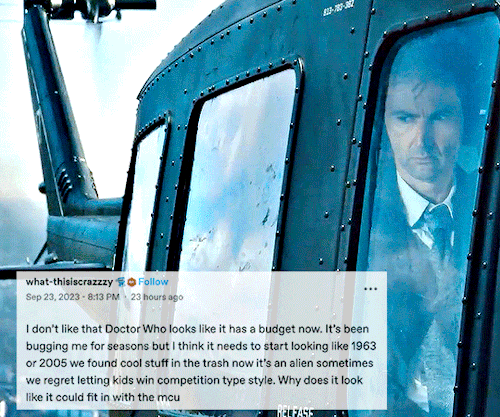
I love this gif. Think about it. The MCU has a LARGE audience base and Tony Stark is the face of the MCU and is one of the richest men alive. It is no accident that UNIT looks like a tower that was erected by a a white male American narcissist who sacrificed his life to save the entire universe. Love him or hate him, Tony Stark gets your attention. And so does Iron Man. And so do the other Avengers. You know who else has a tower? Batman. (Right?). He's DC. Some people like both. I don't know enough about the DC characters.
And think about RDJ who is trying to step away from the Tony Stark image. It's a character he loved, a character that changed his life after he got out of prison, and he will always love Tony Stark, but he and Tony Stark are not the same person.
https://www.thestreet.com/media/vintage-video-of-robert-downey-jr-visiting-wall-street-resurfaces-goes-viral
Robert Downey Jr told us what was up in the 1990s.

This is meant to connect to the people who love superheroes and superhero movies. To see that Robert Downey Jr is the way he is because he's seen the ugly side of humanity and he has always told us what he really thinks. People look up to him.
This is meant to catch their eye, to say THIS IS WHAT WE ARE DOING. Please listen to our message.
Nerd culture is beautiful art.

And if you don't spend your time asking yourself how often Neil Patrick Harris is bullshitting us because I refuse to believe that he had never heard of Doctor Who before joining the cast. I think he just threw 100% of his "please" attitude into Barney Stinson.
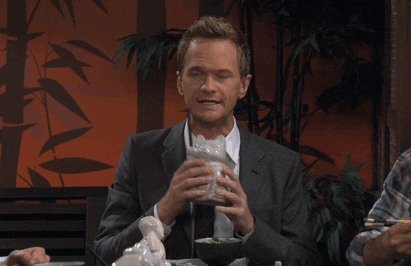
Remember when Neil Patrick Harris played Doogie Howser, MD? The 14 year old Doctor?
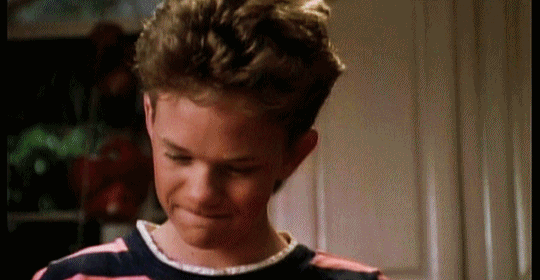
Oh, he was a Doctor too! So let's not forget this other cult classic Doctor character he played. If you haven't seen Doctor Horrible and His Sing-along Blog you are missing out.
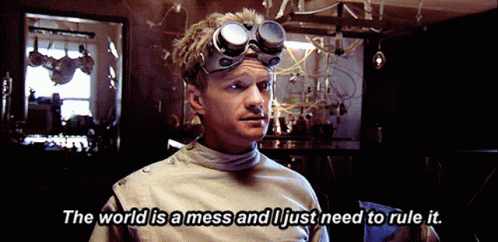
He was once listed as one of Times' 100 Most Influential People in 2010.

He's charismatic and is openly affectionate with his husband and their children.
Love him or hate him, he has a large fanbase. And he is an AMAZING actor. And a really good magician too.
And they used his skills as a magician on Doctor Who, took us to Soho in 1925, and the Good Omens fandom arose from our slumber severe hyperfixation and meticulous meta analysis to dig into a fandom where David Tennant is the most popular incarnation of a particular character, so we are already doing nonstop detective work.
The Good Omens fandom LOVES David Tennant. He is our favorite rebellious demon.
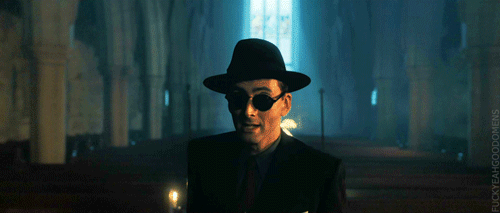
He played the MCU's most terrifying villain (there is not one single MCU villain that has ever terrified me as much as Kilgrave because that fucker uses his powers of mind control to force Jessica Jones into being in a relationship with him...among other things). As a character though, he was fucking fascinating despite the fact we have met so many men who act just like him, and we hate all of them.

Side note: When I typed "Doogie Howzer" into the gif search, this is the most popular image that came up. I consistently get Howser and Howzer confused.
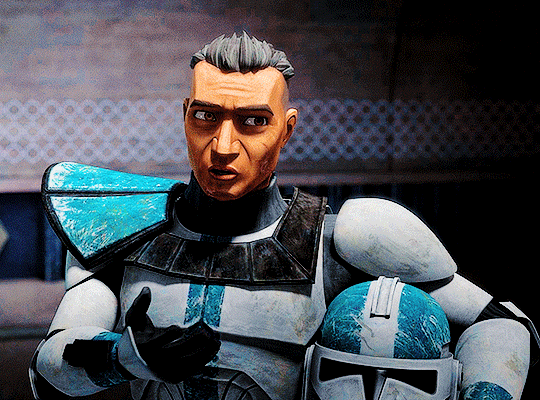
Now I've got the attention of the Star Wars fandom! Howzer rocks.
You know who else appeared on a Star Wars show (again) this year?
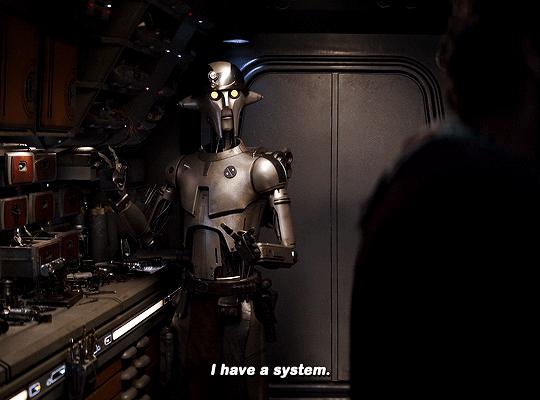

This entire episode was crafted in a way that it formed as many connections as it could with other fandoms.
And not just that. It made sure to include as much representation as possible. Was it perfect? No, but the point is that Doctor Who is telling the world that it is moving on. It is ready to grow and it is ready to be a mainstream voice for everyone whose existence is being threatened by unjust laws.
The new Doctor defied expectations. This Doctor is a breath of fresh air, and a reminder that we will all be okay, but change is inevitable and this sci-fi show about an alien who is either 2,000 or 4,000,000,005 years old. I can't keep up anymore. It doesn't matter because he's a Doctor free from the confines of societal expectations.
Nerd culture is vast, and I know I've left out fandoms because I don't really have all day nor do I know all the fandoms, so I'm just giving you a taste of what I do love.
This episode is meant to be for everyone who needs a place to call home.

And the old Doctor finally gets to retire to make way for the new Doctor.
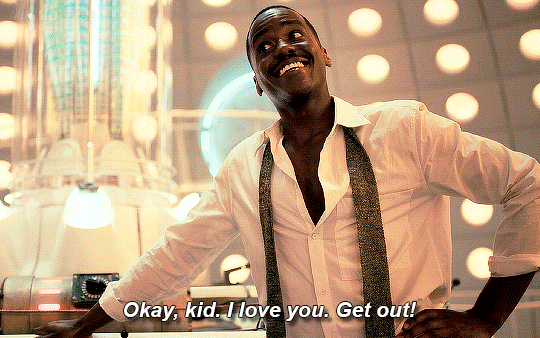
And as a reward for longtime fans, the retired Doctor has found a place to call home on Earth with his best friend. David Tennant will always be Doctor Who because the old Doctor was allowed to live.
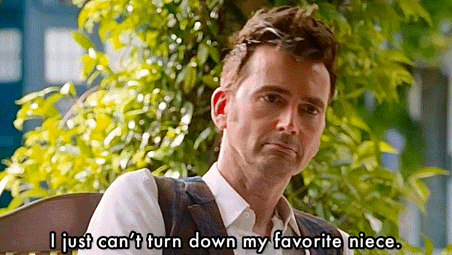
And for the Staged fandom, you know what that means, Michael?
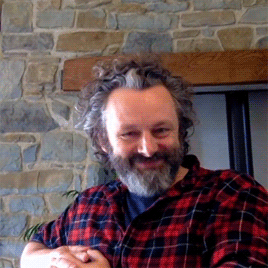

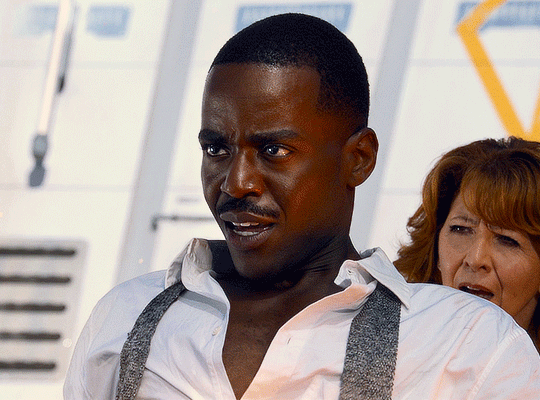
#doctor who#mcu#doogie howser md#doctor horrible's sing along blog#tony stark#iron man#robert downey jr#how i met your mother#good omens#jessica jones#kilgrave#david tennant#ncuti gatwa#the giggle#professor huyang#captain howzer#star wars#staged#michael sheen#neil patrick harris#donna noble#mel bush#rose noble#crowley
84 notes
·
View notes
Note
I’m fascinated by the previous ask’s mention of anime “or the Vulcan equivalent” since anime is literally just Japanese animation would Vulcan animation have a distinctive enough style to warrant a distinct name? What is the Vulcan cultures’ views on animation as an art form (in your opinion).
I don't know enough about animation or art as like an evolving discipline as it relates to society/culture to say much about it in an intelligent way but the newest Dungeon Meshi Extra makes me think about it in a purely 'what would be fun' way

Vulcans also have an incredibly long lifespan so it'd be funny if Vulcans were used to listening to stories that are much longer than other species. [See: Tuvok singing his children a 348 verse story as a lullaby and his children loving it]

You know those soap operas that go on for like decades? Vulcan soap operas are going on for CENTURIES.
I think a lot of the most popular stories on Vulcan center around enlightment or war. In fact I think a lot of Vulcan is probably dedicated to those topics - I headcanon that there are multiple museums and monuments about the many wars Vulcan fought with a heavy emphasis on the great toll it took on their people and how awful these actions were. They almost blew up everything with nukes! But then logic saved them...I believe this is also a common thread in stories that aren't about war - being saved by logic. A woman almost falls for charlatan...but logic saves her. A man almost kills his brother...but logic stills his hand. Etc Etc. A Vulcan author could probably write thousands of books in their lifetime, depending on the age they started. I think having an author with hundreds of books is fairly common and Vulcans are often a bit anxious about reading very good authors of other species...what if they die before they finish writing?? Television shows having like 40 seasons isn't that rare and I think their method of storytelling would probably have to differ from ours in order to facilitate that. That's interesting, isn't it?? I wonder about Vulcan media that isn't Surak's teachings. Like, Tuvok says he likes to read - what's he read about? In 'Riddles' Neelix mentions a "Proto-Vulcan Drama" called 'Clash on the Fire Plains' which has 23 parts. Tuvok apparently has this in book form in his quarters but he's often reading things off his PADD which I assume are also Vulcan literature. It seems that a lot of Vulcan stories we hear about are meant to teach some sort of lesson even if they are also entertaining. When it comes to ongoing media (EX: Television show) I think they'd probably follow a series of arcs and situations with the same characters learning and growing. If you start watching season 82 of a Vulcan program then go back to season 7 it's like a whole new set of characters but they just changed because of their experiences. (As your Vulcan friend will rant to you). It gets a bit ridiculous but it's a bit fun too~ I headcanon that Vulcans in Starfleet will often get together to watch popular Vulcan tv shows' new episodes...alleviates some missing home. Others join in and soon we're seeing tv shows from all over the universe! Surprisingly, Vulcan and Klingon programs are fairly similar in the aspect of 'a lot of battle focused shows which teach lessons' but the exact lessons differ, of course. Oh I bet Vulcan tv shows would also have so much intrigue and drama about clans and marriage and propriety etc which Klingons would love. Klingon: So T'Eyanra is going off with Sarun? Even though she was made aware that Sertik is ill and might be plagued with fever? Vulcan: Yes. And do not forget - Sarun's clan changed the water rights of her own, though she does not know this yet. Klingon: -settling in- Sarun's clan is without honor! That knave... -gasp- and the Ektinslahrah ritual is tonight! Vulcan: -also settling in- Indeed. Oh god this was about anime wasn't it? Well just apply all that stuff I said to anime somehow...Vulcan anime is like one piece's length and death note's complexity but with a shocking amount of painstaking slice of life. I think animation would be taken as seriously on Vulcan as it is on Earth - I can't think of anything that'd make them take it more or less seriously? I picture Betazoid animation would have a heavy emphasis on showing feeling though - like visibly as an ever present cloud behind the characters' heads and you have to know what all the colors mean.
#Q&A#Vulcans#liquidink21#This was a fun ask & even though I sorta went off topic I hope you enjoyed~!!#star trek needs to stop making 'save the world' plots and START showing Vanime and Klingon Soap Operas!!!#Let me see the daily lives of these aliens!!#Klingons do NOT keep their characters around they kill those babies left and right BUT a lot of characters will be related#so you'll have Krath son of Modul in season 8 who's father's brother's cousin's cousin's sister's husband was in season 2#and he's here to avenge that death - so WATCH OUT#<- This show takes place in an office#it's easier to remember how a character died and how they were avenged than it is to remember what they did in life#a lot of the time
36 notes
·
View notes
Note
what are katara and azula's favorite things about each other's culture? least favorite?
oooh excellent question!
for katara, her favourite thing about the fire nation is probably their sense of romance. it really pervades nearly everything in the fire nation. (this is all hc i fear BUT) the fire nation has an obsession with passion; be it the physical form in an ever-so-obvious erotic fixation with strong powerful (naked) bodies, the visual language of someone through clothing colour and manner, even violence and death - the fire nation weaves romance through everything, all behind these layers of disicipline and self control. fire nation arts are therefore prolific in every level of society and known to be MELODRAMATIC AS HELL. they adore poetry, theatre, performance, all of it, with romantic tragedy at the core. what im essentially saying is the fire nation is both somehow repressed and obssessed with emotion, and katara resonates with that. she's a romantic at heart herself, and this kind of thing is really attractive to her. of course, it's only once she understands the fire nation that she really falls in love with their ideas of love
her least favourite? where to start! the fire nation's militantism, their bone tight grip on self control, the professional distance expected between everyone who isn't family (and everyone who IS family), the fixation on hierarchy within every level of society. their violent discipline, the dehumanisation of it's leadership figures, their obsession with fighting, death and war, and so on and so on. katara has a big issue with a LOT of the fire nation, though admittedly some of this is her stubborn refusal to understand or adjust her own world image. the fire nation is so unapologetically violent to itself, and as a healer she HATES that. she cant wrap her head around it. just STOP KILLING EACH OTHER.
i think the crux of it is that she simply can't understand how the fire nation expects complete self containment and obedience, all in the pursuit of a rigid sense of order (to avoid the harm that fire causes by it's very nature). it's just... not something she's ever had to contend with. water can't burn a country to the ground with an accidental spark, afterall. from her own cultural background all these rules and complications is a complete anthesis. she thinks its really stupid, honestly
for azula, there's honestly a lot she respects about the water tribes. most of all is their way of life, the tribes are chiefly hunters that harmonise with their environment. in that way, they take up an 'apex' role, and are intimately involved in the cycle of life. birth, living, death, the tribes slip into each role as both a teacher and a student. and i think that kind of simplicity of life impresses azula - the strong and the weak, the community, the easy way everything fits, that everything is used and appreciated. there's no sense of excess, really, to the water tribes and it's deeply satsifying for her. plus, for a princess that's trapped up in a thousand barriers in her own society? i think she's fascinated with the tribes way of allowing oneself to BE oneself. (there's that fire nation romanticism too)
what azula dislikes about the tribes? there's no certainty about them. the community and it's needs are fluid and adaptable. they don't have hierarchy, rules, rigid centuries old protocals to follow. she hates that. they don't have a formal military, they don't have an independant judicial body, they don't have a formal branch of religion. as much as the tribe fits into a harmonisiation with the world, azula wants RULES. she wants ORDER. she wants DISICIPLINE. the water tribe has NONE of that, there's little to no lines in the sand dictating who and what. its so frustrating for her. it's basically just azula not understanding how the water tribes can function as an ever changing thing. shes like a fish out of water (forgive the pun), as her entire life is defined by rules and absolutes.
also, and more pettily, azula is a traditionalist that actually adores the tech and metal of the modern fn age. where's her central heating?? what do you mean they only have a central fire for warmth?? she wants a SPA, NOW. shes a brat
#i realise now that their respective dislikes is just. like. their relationship w their bending applied on a wider scale#and also the perfect parallels between the two. sorry. i am unoriginal i fear#its just that i construct atla characters n societies by starting w their bending and exploring outwards#so the fire nation emulates all aspects of fire: it's passion of life and its need to be controlled to avoid harm#and the water tribe emulates all aspects of water: its fluidity and its fundamental relationship with the processes of the world#that then naturally translates to benders within those societies. and they're both intimiately shaped by the respective relationships w it#so. urrrrm. in conclusion#azula wants a spa and katara wants everyone to stop acting like her co-worker#azutara#azula#katara#atla#anon ask
51 notes
·
View notes
Text
Something I’ve Been Thinking About in Terms of Arthurian Paganism:

And it deals with Lancelot Du Lac.
Something I find super interesting as I interact with Arthuriana on Tumblr and read/listen to books about King Arthur is how I view Lancelot Du Lac in the greater context of my paganism journey with this pantheon.
I’ll admit that Lancelot is not my favorite knight as a character, and I have not reached out to him as a deity, but Lancelot du Lac as a literary device is fascinating—and has somewhat shaped one of my domains for him.
Lancelot du Lac is a literary device used to explain the cultural trends from the moment he was inserted into canon and onwards. First when Courtly Love became a main trope in literature, Lancelot du Lac represented everything a Courtly Love should be. He did everything for Guinevere and Guinevere, to the best of her station in society, did everything for Lancelot—but they could never be as Guinevere was married to another. Lancelot was used as a vehicle to discuss what intrigued people so much about Courtly Love as well as giving women in loveless marriages a means to escape and think of world where they could be with who they loved.
Then when Courtly Love became a “no no” as shifting cultural values and norms enforced the idea that adultery in any situation was wrong, Lancelot became the vehicle to tell that story in the Post-Vulgate. The reason why Galahad exists to an extent, and, in this telling, the Battle of Camlan, is to show just how much this grievous sin could bring about the damnation of all people’s lives around you. Galahad even warns his father Lancelot to not fall back into his old ways with Guinevere when he returned to Camelot, and, after everything was said and done, the two people who committed the sin of adultery could never be together again—not even in death.
And then everything changed again, and now shipping wars are a more common cultural phenomenon. So the Lancelot/Guinevere/Arthur love triangle became the Arthuriana version of Team Edward VS. Team Jacob. You wrote your retelling picking an end game for Guinevere and Sir Lancelot became the literary vehicle to discuss complicated relationships in a new YA format.
And finally, with it being more accepted to write books about queer experiences, Lancelot now becomes a vehicle for that discussion in a literary lens—as seen in tumblr discourse and retellings where Gawain was in love with Lancelot and vice versa. Or painting Lancelot/Guinevere/Arthur as a polycule. Or a thousand other different things.
So what does this mean for my pagan path?
Well, Lancelot du Lac’s main domain as of right now are the arts and literature. The humanities, mainly.
We see Lancelot du Lac as one of the best ways to tell a story—his entire character inspires discussion, histories, and retellings. And I believe his domain should reflect that. Lancelot du Lac is one of the best literary mirrors I can think of, so I hope this does him some justice.
#witchcraft#random update#chaos witch#paganism#witchblr#arthurian paganism#arthuriana#lancelot#lancelot du lac#Lancelot discourse#domains#pagan witch
11 notes
·
View notes
Text
My Babylon 5 thoughts
Here are my thoughts on Babylon 5 after watching it for the first time. I could talk for ages about this show but unfortunately that is too long for a text post (I tried going season by season but it was about as long as this post and I hadn’t even gotten to season 3 when I realized it was way too long). So I will try my best to keep it brief and just my overall thoughts.
Overall I really love this show! It’s definitely become one of my favorite sci-fi shows out there! Babylon 5 has an amazingly rich world full of life and inhabited by some of the best written and performed characters in all of sci-fi. I could talk forever about some of my favorite moments in the show and every single character but I’ll try to narrow it down to just a few, but know that there is so much else I love about it. There will be spoilers ahead!
Thoughts under the cut
What is there to say that I’m sure others haven’t already said about Londo and G’Kar and the relationship between the Narn and the Centauri and that arc the show takes us on. By far one of my favorite arcs and relationships on the show. The Narn and Centauri conflict played out through seasons 2 & 3 is chilling. G’Kar made me cry so many times not just in that story arc but in his own personal arc as he grew throughout the show. Londo’s story arc is haunting and a beautiful tragedy you can’t look away from. There relationship throughout the show and how it changes and grows as they do is something that will stay with me forever. Truly one of the best parts of the entire series! G’Kar specifically is one of my all time favorite sci-fi characters right up there with Kira Nerys! Just overall two of the best written and performed characters with some of the most compelling story arcs and relationship to one another that I have ever had the pleasure of witnessing!
While the shadow war was the biggest thing introduced by the show and it was fascinating and overall very well done, I found the stuff going on with earth and the fight against the rising and eventual full on fascism there the most compelling major plot in the series. The whole earth fascism arc was really well done and just horrifying and eerie to watch unfold. I really don’t have more to say about it other than that it was so fantastically done and it speaks for itself and you should go watch it!
I also was extremely pleasantly surprised with the shows handling of religion and spirituality. So much of sci-fi disappointingly either entirely ignores it or exclusively uses it for their villains. Both have always been pretty disappointing takes for me and don’t take advantage of the kind of roll these things can take in peoples lives or their full storytelling potential. Babylon 5 plays with these concepts fully and beautifully and it makes the story, the cultures within it, and its characters so much richer getting to see how religion and spirituality are at play in this world. I still cry thinking about the end of the episode with the religious festival where Sinclair showcases all of earths religions, it was a beautiful moment and touching to see that in Babylon 5’s future all these different religions, ways of thinking, these cultures, still exist, we’re all still here and we are all very human and I found that beautiful.
I’ve said a few things I loved so I’ll quickly go over some of the things I found lacking or flawed before wrapping it up with the rest of what I loved.
While I know a lot of this is due to a lot of behind the scenes production issues, that doesn’t change the fact that this show had a huge issue with wasted characters. There are plenty of characters I liked that got their time cut short that I could talk about but I will only focus on the ones that I’m actively still mad about.
I hate what they end up doing with both Marcus and Lennier and their unrequited love storylines. It’s not even that they went with unrequited love storylines, there are plenty of ways I think they could have still written them with unrequited love storylines that weren’t the in my opinion absolute character assassinating ways they ended both their arcs. I liked Marcus and Lennier but they never used Marcus very effectively then just absolutely take him out in the worst way possible that not only was a disservice to him as a character but completely tainted Ivanova’s exit from the show and her blaze of glory moment which was really upsetting as Ivanova is one of my favorite characters in the series. And Lennier’s unrequited love was actually going in a direction I would have liked, loyal to the end friendship and love but then season 5 happened and they just completely ruined Lennier as a character and his and Delenn’s wonderful relationship of loyalty and friendship and a form of love up until that point. I am upset on behalf of both Marcus and Lennier as characters that didn’t deserve that and Ivanova and Delenn whose own story’s were impacted in the aftermath of these bad storylines.
The only other major thing that bothered me was season 5 and the subsequent movies and spin off not really going anywhere or getting wrapped up in any way. I saved the final episode to watch til last which really worked cause even tho a lot of the stuff introduced in season 5, the movies, and spin off don’t get wrapped up, the Finale was emotionally cathartic and wrapped the show up perfectly on an emotional level. It was just odd to me to introduce a bunch of storylines that weren’t going to get finished, and I get that a lot of it was due to production issues but they did know the show was ending so they could have avoided some of it. Still that was mildly annoying but I suppose I can hopefully find out what happened on some wiki articles or maybe some of the B5 novels.
Okay back to more things I loved for a B5 positivity sandwich! Can we talk about Alfred Bester?!?? I desperately want to go into detail about how much I love this character and especially how phenomenal the performance was but in case the actor gets nominated for the men’s bracket I won’t. I will just say Bester is one of the best Sci-fi villains I’ve ever had the pleasure to witness, right up there with Dukat on Deep Space 9. And it is the best showcase of acting skill and one of the best if not the best performance by the actor who portrays him (who I can’t talk about cause I don’t want to induce a bias but if you know you know)!
While I found a lot of the movies to be bad with some okay/funny bits, to good but flawed and unnecessary, I really adore B5’s spin off Crusade. While some of its early episodes weren’t the strongest they were still fun and enjoyable and its later episodes were great! The characters were delightful and it had an interesting set up and premise. I am genuinely really sad we only got a single season of Crusade as it was better than a lot of other sci-fi series first seasons that did go on to get multiple seasons. If I had a choice to bring back or renew one thing from the Babylon 5 franchise I would genuinely bring back Crusade so we could see a full finished series cause it was cut way too short and I would have loved to see a full series of it. It wasn’t as great as B5 overall but it was good and I really enjoyed it. Plus I had a childhood crush on one of the leads of the show who I won’t name in case anyone nominates any of the guys on this show for the men’s bracket but that certainly biased me towards liking the show 😅.
Also possibly unpopular opinion but I didn’t hate The Legend of the Rangers. It was definitely a bit cheesy and didn’t really feel like it fully fit into the B5 universe so I understand why it wasn’t picked up as a show. But it was fun cheesy for me, very Babylon 5 does Power Rangers and I totally would have watched it had it been picked up. But I also like Power Rangers and how cheesy it can be so maybe that’s just a me thing. I similarly loved the Vorlon encounter suits and the Mantis character from season 1 for similar reasons of them reminding me of the suits and puppet effects used on Power Rangers and other similar media that I think are really fun and always love to see!
One final kind of small thing but B5 actually found a way to make dogfight style space combat interesting to me. I’ve always found the more submarine warfare style ship to ship combat more compelling as when things become a space dogfight it often devolves into just a bunch of space lasers and fast ship unintelligible nonsense and I loose all interest and stakes in what’s happening on screen. B5 found a way to keep the stakes and emotions high so even when they went into more aerial combat I was still fully engaged in the story and what was happening. So thanks for that B5, I genuinely thought it couldn’t be done well but they proved me wrong.
Overall I found Babylon 5 to be a phenomenal show and definitely one that’s certainly become a favorite of mine! I could talk so much more about every season and every single character and the things I love about them but this post is already long enough 😅. I definitely plan to rewatch it many times over (and attempt to perfect a watch order I personally like best cause I see why watch order is so debated now) and am already immediately trying to get mod violet and my partner to both watch it with me in the future (that’ll be two excuses to rewatch it)! It certainly has its flaws but all of my favorite things do and they certainly don’t remotely outweigh the absolutely phenomenal parts of the show.
Finally, I apologize to the Mira Furlan fans that she did not make it far in our tournament. I get it now! Her performance as Delenn is phenomenal and she is absolutely captivating every second she is on screen. She has the beauty and grace of a Disney princess and the terrifying ethereal presence and power of the sun and the moon.
- mod vintage
20 notes
·
View notes
Text
top books of 2024!
i’ve been doing a lot more reading and i love talking about it so here are my faves. i tried to narrow it down to 5 and then went “well, i can’t leave THAT one off the list!” so ten fiction and five nonfiction recs for you:
fiction:
1. nettle and bone by t. kingfisher - i’m a sucker for a fairytale and this was a good one. felt very familiar and still very new all at the same time. t. kingfisher was a new to me author this year and her horror didn’t hit but all her fairytales did. this one was very good, and a princess nun on a witchy endeavor was a fun time.
2. burial rites by hannah kent - i read this in one sitting because i couldn’t put it down, and i’m still thinking about it almost a year later. the way kent changes your opinion on the characters is so skillfully done and i liked it a lot.
3. the library at mount char by scott hawkins - this is not a book for everyone but i do love a plot that makes me go “HOW did you even THINK of that?!” what WOULD you do if god went missing?? massive trigger warnings but oh so good.
4. the alice network by kate quinn - kate is my holiday read author of choice and i read this in poland in the summer and it was perfect. the rose code is still my favourite book of hers but this one ranked up there. love a good spy network.
5. beartown by fredrick backman - i loved this one but i think i would’ve loved it more if i had not read the other two. good, but after three books of that length it does drag. masterful control of perspective and of plot weaving, plus some great ruminations on hockey.
6. the six deaths of the saint by alix e. harrow - i am overjoyed that harrow is (allegedly) making this into a longer novel because i LOVED IT. the visceralness of it. the cyclical nature. the horror when you realise what’s happening. perfect.
7. when among crows by veronica roth - i’m a slut for slavic folklore and this has such a sense of both history and place that really draws you in. i cannot stop thinking about the spine sword. i wish it had been longer just to stay in the world more.
8. the english understand wool by helen dewitt- i know it’s three novellas in a row but they were GOOD!! this one was an amazing length and just a fascinating almost oceans eleven-esque unraveling of a story. i gasped.
9. normal people by sally rooney - i know I KNOW. but i went to school on the emerald isle and it just resonated in lots of ways. i fell in love with the characters and honestly? might reread this winter bc i loved the atmosphere.
10. penance by eliza clark - god. this book. brutal in the worst ways and such an insightful commentary on, well, a lot of things. true crime culture, online communities, parasocial relationships, the weirdness of girl friendships as teens. also a potential reread!
nonfiction:
1. red valkyries by kristen ghodsee - probably my favourite book i’ve read this year, just because i learned SO much!! i read it in one sitting because i was just so fascinated by these amazing women, and i walked away with a more nuanced, more positive view of lenin than before.
2. the quiet damage by jesselyn cook - possibly the best nonfiction book i have ever read? i couldn’t put it down. heartbreaking and tough to read but i think very necessary in these days.
3. war is a force that gives us meaning by chris hedges - this is very good with a disclaimer. i agreed with a lot of his overarching philosophies but i didn’t agree with his examples. it has some pitfalls, but! parts of it are essential reading for peacebuilders. if anyone wants to chat abt this one please text
4. in the dream house by carmen maria machado - this was a very good memoir and very innovative in form. i liked that part a lot but i couldn’t quite shake the feeling that this was not written for me. that’s okay! i could still see how it might be impactful and, again, i liked the playing with tropes, but didn’t hit me the way i expected after seeing other people’s reactions.
5. the sunflower by simon wiesenthal - i tell everyone to read this book if they are interested in peacebuilding at all. it’s a good commentary on forgiveness. not much else to say except it’s fascinating.
and that’s all for now! i read 62 books and am trying to read 100 in the upcoming year (about 8 a month). my personal goal is at least one nonfiction a month, but my secret goal is two with one being more memoir and one being more informative. it was fun rediscovering how to read again and i’m hoping to continue that in 2025 :)
also for the record the worst book i read this year is the idea of you which is the one that anne hathaway starred in an adaptation of. absolutely terrible.
8 notes
·
View notes
Text
more relevantly to my actual life...
today I went down to the shipbuilding museum in Govan, on the site of the old Fairfields Shipyard. in Victorian times and much of the 20th century, this area was a massive industrial hub, a huge line of shipyards that built all kinds of ships from ocean liners to warships and oil tankers. the industrial history - how they built the ships, how it shaped the local architecture that includes the house I live in today, who these people like John Elder in the statues were, was pretty fascinating. but the broader narrative was a curious one.
Govan's history has a curious intertwining of political philosophies. Scotland has a certain degree of sectarianism, albeit not Northern Ireland bad, and Govan falls into the box of being a loyalist area, which still manifests in various traditions like the 'Pride of Govan' parade (which I encountered mostly as a loud clattering sound). there is a string of nationalist pride in the history told by the museum, when they talk about warships and so on, how at one point two-thirds of the world's ships were built in Britain and many of them right here.
but equally, it's a very working class area and it has a real socialist history. sure, I don't have to walk too far to find a statue of John Elder, the industrialist, and another of his wife who set up the park opposite the shipyard - but at the train station there is also a statue of local hero Mary Barbour, who led a successful rent strike during the First World War's crackdown on labour, and she too gets her space in the museum. some of the museum exhibits concerned the sort of labour history of the place - the strict seven-minute toilet breaks and history of lethal accidents.
the Fairfield company did not survive the second half of the 20th century, and went under a few decades back, leaving the shipyard facilities to change hands a few times. most recently, after having its future be in question for many years, the Fairfields shipyard was taken over by BAE Systems to make naval ships, such as destroyers, patrol boats and segments of aircraft carriers. at the museum this mostly seems to be treated as a good thing, part of the story of the 2010s economic revitalisation of the area. and I can imagine this shipyard does, in fact, employ a lot of people. the hangar-like building they've just erected there (to build some sort of ship) is a looming symbol of the military-industrial complex that I see whenever I am out in Govan.
and yet, it is also not something that seems to sit easily with people here. a local newsletter reported on a Palestine protest outside the shipyard and the harsh police response, in terms that heavily favoured the protestors. even if the shipyard employs a lot of people for the sake of the country's 'interests' (seriously they put that on the big recruitment poster), I don't get the impression I'm surrounded by nationalists.
actually pretty much all the people I have met in Glasgow have been awesome. there's all sorts of little social spaces and music groups and libraries and independent film festivals and so on around here, and so much nerd and weeb shit over in the city centre. I feel like I might be able to develop a sense of being part of a place that I never really managed to find in London (more on me than the Londoners, really).
come to think of it, there is also plentiful graffiti around town - most of it is of course tags, there is a really thriving tagging culture - but here are there are political ones, in most cases actually about Israel and Palestine. the 'free palestine' ones are not surprising and a welcome sight, but I do scratch my head at the one local (I assume) who went round drawing Israel's flag in blue pen and writing 'IDF' on surfaces, which seems off-message insofar as it comes off a lot more like a gang symbol than a reference to a nice clean professional military...
I still haven't managed to see the Govan Stones, the other big piece of History in Govan. the old church is closed, and won't reoopen until the summer. still, it's really cool that this museum exists, and I definitely recommend swinging by (entry is free). they have see some huge model ships, insane amounts of videos, and a pretty cool 3D visualisation of the evolution of the area, and the attendant was really keen to chat with me and my friend and tell us about the exhibits lmao
11 notes
·
View notes